C.D. Marathón
Club Deportivo Marathón is a Honduran football club founded in November 25 of 1925, based in San Pedro Sula, which currently plays in the Liga Nacional de Fútbol Profesional de Honduras.[1]
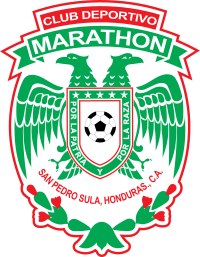 | |||
| Full name | Club Deportivo Marathón | ||
|---|---|---|---|
| Nickname(s) | El Monstruo Verde (the Green Monster) Los Panzas Verdes (the Green Bellies) Verdolagas Esmeraldas (Emeralds) Sinfonía Verde (Green Symphony) | ||
| Founded | 25 November 1925 | ||
| Ground | Estadio Yankel Rosenthal, San Pedro Sula, Honduras | ||
| Capacity | 5,500 | ||
| Owner | Orinson Amaya | ||
| Manager | Hector Vargas | ||
| League | Liga Nacional | ||
| 2019 Apertura | Liga Nacional, 2nd (regular season) 5th (postseason) | ||
| Website | Club website | ||
|
| |||
History
Club Deportivo Marathón was founded on 25 November 1925 in San Pedro Sula by Eloy Montes and a group of his friends.[2] Ever since, Marathón has become one of the most prestigious clubs in Honduras, winning multiple titles. The Club Deportivo Marathon has its own sporting venue that has different fields for both first-division team to the bottom and even a tennis cement based foosball lit for night games. The venue has since improved through the years by the support of Friends of the Marathon Group (GAMA) and the different boards that have led to the computer.
First title (1979)
The club would get its first title in their history in 1979. Under orders from Ángel Ramón Rodríguez, Marathon was looking for their first championship in Honduras for the 1979 tournament. With figures like Roberto "Robot" Bailey, Arturo "Pacharaca" Bonilla, Francisco Javier Toledo, Celso Güity, Efraín "Pucho" Osorio, Ramón "Albañil" Osorio, René "Maravilla" Suazo, Jorge Alberto "Cuca" Bueso, Félix Carranza, Jorge Phoyoú (Uruguayan), Alberto Merelles (Argentina), Juan Carlos Wéber (Argentine) and others, the club remained in first place in the regular rounds, having secured their classification to the final.
Second title (1985)
It took six years for Marathon to get a new title. This was achieved in 1983. At that time, Gonzalo Zelaya (who was champion with Sport Club and Social Vida two years earlier) of La Ceiba was the team coach. In the regular season, Marathon was second in their group behind Club Deportivo Olimpia on goal difference. In the final round, Marathon was the champion with 4 wins, 1 draw and only 1 loss to rivals: Life, Motagua and Olimpia. In the deciding match in San Pedro Sula, in the Estadio Francisco Morazán, Marathon faced the Life. With a goal by Roy Padilla Bardales, the emerald table won 1–0 and was crowned for the second time in its history.
Third title (2002)
Marathon had a drought of nearly 17 years without any National League title. However, at the beginning of the new century, the club began having a resurgence. This is due to that, in 2001, the Honduran coach Jose de la Paz Herrera(better known as Chelato Uclés) began a renovation project on campus. Forming a team without much fame, Mr. Uclés led the Marathon again at the top; turning it again into a big team. In his second tournament (Apertura 2001) Marathon, led by Chelato's team went to the final, losing against Motagua on penalties (5–3).However, the great work of Marathon was applauded and recognized by several journalists, hobbyists and technicians in the country its offensive and attractive football. For the Clausura 2002, Marathon finally got what they desired: a championship. Finishing third in the regular rounds with 29 points, Marathon faced in the semifinals to Platense of Puerto Cortés.. In the first leg, Marathon won in San Pedro Sula 2–1 with a brace from Enrique Centeno Reneau; Platense pulled by Clifford Laing. In the first leg, Marathon tied 0–0 at Puerto Cortés and qualified for the final. For this occasion, Marathon faced Olimpia in the final, who defeated Victoria hurriedly in the semi-finals. In the first leg played in San Pedro Sula in the Estadio Olimpico Metropolitano, Marathon defeated Olimpia 4–1 with a penalty from Nigel Zuniga, and goals from Enrique Centeno Reneau and Óscar Vargas. The beating caused many to consider Marathon champions of Honduran football again. The then coach of Olimpia, Edwin Pavon, clarified that the end was virtually doomed. In the second leg at Estadio Tiburcio Carias Andino Tegucigalpa, Marathon had great support, almost seven thousand fans club traveled to the Honduran capital to support the team. Even had fans of teams like Motagua and Real Spain that joined the "green" invasion of the capital. Olimpia started winning 1–0 with annotation Gustavo Fuentes 7 minutes. It seemed that the capital team was going to go up. However, Marathon intelligently controlled the game. Finally, they ended up sinking the Olympia in their own field, to his own supporters who turned against their own team. With a smart, driven and practical football, Marathon were crowned champions of Honduras.
Fourth title (2003)
Just after 13 months, Marathon would again win another title. In the Clausura 2003, the "Greens" were directed by the Brazilian Flavio Ortega. Ortega replaced the Argentine Miguel Angel Lemme, who left in the middle of the tournament. Flavio Ortega lifted the team to finally put it in second place in the regular turns (only surpassed by Olimpia). In the semi-finals, Marathon faced Real España. In the first leg both teams tied 1–1; Henry Jimenez pushed Real España 1–0, but Pompilio Cacho tied for the Emeralds. In the return game, played at the Olympic Stadium in San Pedro, Real España came back to draw 1–1. Real España returned to win from a goal by Honduran George Fonseca, however, midfielder Narciso Fernández tied the game for a Marathon Olympic goal. Marathon entered the final for better position in the regular season. Marathon faced Motagua in the final. The Motagüenses eliminated Olimpia in the semi-finals, giving them even more strength to meet the final. In the final round played at the National Stadium in Tegucigalpa, Marathon surprised to win 1–0 with a goal from Emil Martinez (who was later expelled). With this, the Emeralds had a big advantage for the final round. In the return game, Marathon had a huge number of fans at the Estadio Olímpico (the ticket office registered 35,000 fans), the second largest in the history of La Liga Nacional. Motagua would have won with goals from Luis "Tanque" Oseguera in the 39th minute, however the forward Pompilio Cacho scored the equalizer at the end of the first half. In the second half, Marathon were up 2 goals; both scored by Brazilian Denilson Costa. With this, Marathon were champions.
Fifth title (2004)
The team won its fifth title in Apertura 2004. The former club player Nicolás Suazo guided them to win the championship against Olimpia in Estadio Tiburcio Carías Andino. After winning the first game in San Pedro Sula, the verdolagas got the tournament after beating Olimpia in overtime thanks to two goals from Uruguayan Edgardo Simovic
Sixth title (2007)
On 22 December 2007, Marathón won its sixth title in the history of Honduran Liga Nacional. Under the guidance of the Uruguayan coach Manuel Keossian, the club beat Motagua in San Pedro Sula by 2–0 score after a 0–0 draw on the first leg in Tegucigalpa. Mitchel Brown (Honduran) and Erick Scott (Costa Rican) scored the winning goals for the club.
Seventh title (2008)
On 13 December 2008, Marathón won its seventh title in his history on Liga Nacional and the fifth one on the new century. With Manuel Keosseian again as the coach, the club beat Real España in Estadio Olímpico Metropolitano by 1–0 score in the first leg. In the second leg, both teams finished in a 1–1 draw on Estadio Francisco Morazán. Mario Berríos scored the tie goal.
Eighth title (2009)
Marathon faced Olimpia in the final, they had lost 1–0 in the first leg in Tegucigalpa and needed a win in order to crown themselves as champions in the return leg in San Pedro Sula. The game ended 2–0 in favor of the Verdolagas with goals from Guatemala's Guillermo Ramírez and the Honduran striker Jerry Palacios, who with this goal was crowned top scorer of the tournament. This led the Marathon to win their eighth and until now last league.
Ninth title (2018)
On May 19, 2018, Marathon was the new champion after 6 years on Liga Nacional of Honduras. Marathon faced Motagua 5–4 in penalties in the stadium of Yankel Rosenthal in San Pedro Sula. Under the guidance of the coach Hector Vargas, the club maintain their leadership during the entire tournament and ended up successful.
Stadium
Marathon plays its home games in Estadio Yankel Rosenthal, which is located in San Pedro Sula. Marathon Club is the only team in Honduras to have its own stadium. Estadio Yankel Rosenthal is a multi-purpose stadium located in Colonia La Sabana in San Pedro Sula, Honduras has a capacity of 15,000 fans. The project, which was scheduled to be completed in full for 2007, was postponed to 2009 due to financial problems.
Club rivalries
Clásico Nacional
El Clásico Nacional (The National Classic) is a Honduran national football derby played between Olimpia, since one team was from Tegucigalpa and Marathón, the other one from San Pedro Sula. When Olimpia won its first national title in September 1928. At that time, Olimpia representing the central zone, won at a final series of three matches to Marathón, champion of the north. Following this end, he created a huge rivalry between these two teams to which he called the National Classic.
Clásico de las M's
El Clásico de las M's (The Classic of the M's) or El Derbi de las M's (The "M" Derby), is a derby football match played between Motagua from Tegucigalpa and Marathón from San Pedro Sula, two of the most successful and popular football teams in Honduras.
Clásico Sampedrano
El Clásico Sampedrano (The Sampedran Derby) is a Honduran football match played at least 4 times a year in the Liga Nacional de Futbol de Honduras by two teams: Marathón and Real España. These two teams are from San Pedro Sula, hence the name.
Nicknames
Marathon has many nicknames including: Sinfonía Verde, Panzas Verdes, Verdolagas, Esmeraldas, Monstruo Verde.
Support
The Club Deportivo Marathon as one of the big four teams in la Liga Nacional de Fútbol Profesional de Honduras being the second team to Honduras in terms of number of fans, being beaten only by Club Deportivo Olimpia.
Ranking mundial de clubes – IFFHS
In 2009, the Club Deportivo Marathon enconto according to the IFFHS (List of the top 350 clubs in the world) as the best and only club Honduras has positioned at 234 in the world with 82.0 points. (Updated to August 30, 2010) as the top club Deportivo La Coruna, Osasuna, Espanyol, River Plate, Racing, Boca Juniors, Club Atlético Peñarol, Cagliari, among others.
Achievements
Domestic
- 1979–80, 1985–86, Clausura 2002, Clausura 2003, Apertura 2004, Apertura 2007, Apertura 2008, Apertura 2009, Clausura 2018
- Runners-up (12): 1966–67, 1967–68, 1973–74, 1980–81, 1987–88, Apertura 2001, Clausura 2004, Clausura 2005, Apertura 2005, Clausura 2007, Clausura 2008, Clausura 2012.
- Honduran Cup: 2
International
- Marathón was the first team in Honduras to beat a Mexican club in official matches. In the year of 1981 Marathón beat Cruz Azul in Mexico 3-1
- The first game that Marathon held against South American teams was in 1968 and his opponent was the Cúcuta of Colombia, which he defeated 3–0 in el Estadio Morazán and the last match he has had against a South American team was in 2002, when he won to the River Plate of Argentina 3–1 at the Metropolitan Olympic Stadium
- The first game against a Mexican team was in 1967, when they crushed Irapuato 6–3 at the Francisco Morazán Stadium and the last recorded match was on September 14, 2010, when they lost 2–0 against Monterrey in Mexico
- Marathón held a game against Santos of Brazil in 1969 which was tied 1-1. Pelé formed the second half alignment.
- CONCACAF Cup Winners Cup
- Third-place (1): 1995
League and playoffs performance
(1994–present)[3]
| Season | Position | GP | W | D | L | GF | GA | PTS | Playoffs | Pl. | W | D | L | GS | GA | PTS |
|---|---|---|---|---|---|---|---|---|---|---|---|---|---|---|---|---|
| 1994–95 | 6th | 27 | 9 | 7 | 11 | 34 | 33 | 34 | First round | 2 | 0 | 2 | 0 | 1 | 1 | 2 |
| 1995–96 | 4th | 27 | 9 | 9 | 9 | 32 | 31 | 36 | First round | 2 | 0 | 1 | 1 | 0 | 2 | 0 |
| 1996–97 | 5th | 27 | 10 | 7 | 10 | 31 | 29 | 37 | First round | 2 | 1 | 0 | 1 | 2 | 2 | 3 |
| Apertura 1997 | 4th | 20 | 8 | 8 | 4 | 30 | 24 | 32 | First round | 2 | 0 | 0 | 2 | 2 | 4 | 0 |
| Clausura 1998 | 4th | 20 | 7 | 9 | 4 | 29 | 28 | 30 | First round | 2 | 0 | 1 | 0 | 1 | 1 | 1 |
| 1998–99 | 7th | 18 | 4 | 9 | 5 | 16 | 16 | 21 | Did not qualify | - | - | - | - | - | - | – |
| Apertura 1999 | 8th | 18 | 3 | 8 | 7 | 16 | 22 | 17 | Did not qualify | - | - | - | - | - | - | – |
| Clausura 2000 | 5th | 18 | 6 | 4 | 8 | 24 | 22 | 22 | Semi-finals | 4 | 1 | 3 | 0 | 4 | 3 | 5 |
| Apertura 2000 | 9th | 18 | 4 | 6 | 8 | 20 | 25 | 18 | Did not qualify | - | - | - | - | - | - | – |
| Clausura 2001 | 3rd | 18 | 9 | 3 | 6 | 30 | 20 | 30 | Semi-finals | 4 | 1 | 2 | 1 | 4 | 4 | 5 |
| Apertura 2001 | 2nd | 18 | 8 | 7 | 3 | 28 | 22 | 31 | Runners-up | 4 | 2 | 1 | 1 | 6 | 5 | 7 |
| Clausura 2002 | 3rd | 18 | 8 | 5 | 5 | 27 | 21 | 29 | Champions | 4 | 2 | 1 | 1 | 6 | 3 | 7 |
| Apertura 2002 | 3rd | 18 | 7 | 7 | 4 | 22 | 16 | 28 | Semi-finals | 2 | 1 | 0 | 1 | 1 | 2 | 3 |
| Clausura 2003 | 2nd | 18 | 10 | 3 | 5 | 33 | 17 | 33 | Champions | 4 | 2 | 2 | 0 | 6 | 4 | 8 |
| Apertura 2003 | 4th | 18 | 8 | 4 | 6 | 21 | 16 | 28 | Semi-finals | 2 | 0 | 1 | 1 | 3 | 5 | 1 |
| Clausura 2004 | 3rd | 16 | 7 | 4 | 5 | 22 | 14 | 25 | Runners-up | 4 | 2 | 1 | 1 | 5 | 4 | 7 |
| Apertura 2004 | 3rd | 18 | 10 | 4 | 4 | 23 | 17 | 34 | Champions | 4 | 3 | 1 | 0 | 8 | 5 | 10 |
| Clausura 2005 | 2nd | 18 | 7 | 6 | 5 | 24 | 22 | 27 | Runners-up | 4 | 0 | 3 | 1 | 3 | 4 | 5 |
| Apertura 2005 | 3rd | 18 | 7 | 8 | 3 | 30 | 26 | 29 | Runners-up | 4 | 3 | 0 | 1 | 7 | 4 | 9 |
| Clausura 2006 | 9th | 18 | 2 | 5 | 11 | 16 | 27 | 11 | Did not qualify | - | - | - | - | - | - | – |
| Apertura 2006 | 4th | 18 | 8 | 6 | 4 | 30 | 20 | 30 | Semi-finals | 2 | 1 | 0 | 1 | 2 | 3 | 3 |
| Clausura 2007 | 2nd | 18 | 11 | 4 | 3 | 32 | 16 | 36 | Runners-up | 4 | 2 | 0 | 2 | 5 | 6 | 6 |
| Apertura 2007 | 1st | 18 | 10 | 3 | 5 | 27 | 16 | 35 | Champions | 4 | 2 | 1 | 1 | 4 | 1 | 7 |
| Clausura 2008 | 2nd | 18 | 9 | 3 | 6 | 30 | 23 | 30 | Runners-up | 4 | 1 | 1 | 2 | 6 | 7 | 4 |
| Apertura 2008 | 2nd | 18 | 9 | 5 | 4 | 26 | 20 | 32 | Champions | 4 | 2 | 1 | 1 | 3 | 2 | 7 |
| Clausura 2009 | 2nd | 18 | 10 | 4 | 4 | 42 | 23 | 34 | Semi-finals | 2 | 0 | 0 | 2 | 2 | 6 | 0 |
| Apertura 2009 | 1st | 18 | 11 | 5 | 2 | 32 | 16 | 38 | Champions | 4 | 2 | 0 | 2 | 5 | 4 | 6 |
| Clausura 2010 | 7th | 18 | 4 | 7 | 7 | 23 | 24 | 19 | Did not qualify | - | - | - | - | - | - | – |
| Apertura 2010 | 2nd | 18 | 8 | 7 | 3 | 26 | 18 | 31 | Semi-finals | 2 | 0 | 1 | 1 | 2 | 4 | 1 |
| Clausura 2011 | 4th | 18 | 7 | 4 | 7 | 21 | 17 | 25 | Semi-finals | 2 | 1 | 0 | 1 | 1 | 1 | 3 |
| Apertura 2011 | 2nd | 18 | 9 | 4 | 5 | 32 | 19 | 31 | Semi-finals | 2 | 0 | 1 | 1 | 0 | 1 | 0 |
| Clausura 2012 | 3rd | 18 | 8 | 7 | 3 | 25 | 19 | 31 | Runners-up | 6 | 2 | 3 | 1 | 4 | 2 | 6 |
| Apertura 2012 | 4th | 18 | 6 | 5 | 7 | 21 | 26 | 23 | First round | 2 | 0 | 2 | 0 | 2 | 2 | 1 |
| Clausura 2013 | 4th | 18 | 5 | 9 | 4 | 26 | 21 | 24 | First round | 2 | 0 | 1 | 1 | 2 | 4 | 1 |
| Apertura 2013 | 10th | 18 | 4 | 5 | 9 | 20 | 30 | 17 | "Did not qualify" | - | - | - | - | - | - | – |
| Clausura 2014 | 5th | 18 | 6 | 6 | 6 | 22 | 25 | 24 | Runners-up | 2 | 2 | 4 | 0 | 3 | 1 | 10 |
| Apertura 2014 | 7th | 18 | 5 | 7 | 6 | 20 | 25 | 22 | "Did not qualify" | - | - | - | - | - | - | – |
| Clausura 2015 | 3rd | 18 | 8 | 5 | 5 | 20 | 23 | 29 | First round | 2 | 1 | 0 | 1 | 3 | 4 | 3 |
| Apertura 2015 | 5th | 18 | 6 | 6 | 6 | 26 | 22 | 24 | First round | 2 | 0 | 2 | 0 | 0 | 0 | 2 |
| Clausura 2016 | 6th | 18 | 7 | 4 | 7 | 25 | 20 | 25 | First round | 2 | 1 | 0 | 1 | 2 | 1 | 3 |
| Apertura 2016 | 5th | 18 | 6 | 6 | 6 | 22 | 22 | 24 | First round | 2 | 1 | 0 | 1 | 3 | 3 | 3 |
| Clausura 2017 | 5th | 18 | 8 | 3 | 7 | 26 | 22 | 27 | First round | 2 | 1 | 0 | 1 | 1 | 1 | 3 |
| Apertura 2017 | 1st | 18 | 11 | 1 | 6 | 27 | 21 | 34 | Semi-finals | 2 | 1 | 0 | 1 | 3 | 4 | 3 |
| Clausura 2018 | 1st | 18 | 11 | 4 | 3 | 35 | 23 | 37 | Champions | 4 | 2 | 2 | 0 | 4 | 2 | 8 |
Other facts
- Marathon in the 1960s and 1970s was known as the "foreign team executioner". This was because at this time, Honduran teams were often swept by foreign team, unlike Marathon (and Olimpia). The most significant triumphs of the greens at the time were: in 1966 the thrashing of
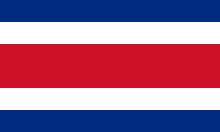


- Marathon was the first Honduran team to beat a Mexican club at home turf in an official match. In 1981, they defeated

- The first game Marathon held against a South American teams in 1968 and their opponent was


- The first game against a Mexican team was in 1967, when they were crushed by

- Marathon's top scorer so far is Gilberto Leonel Machado with 78 goals.[4]
- The biggest official win was in 1976 when they won 7–0 at Campamento
- The biggest defeat was received from

- Marathon held a game and drew 1–1 against

- Marathon has played 15 finals up to 2012–13 C
- Out of the 15 finals Marathon has played, 12 were in the past century. They have won 6 and lost 6:
- Eight against Olimpia (3 wins, 5 losses).
- Three against Motagua (2 wins, 1 loss).
- Three against Real España (1 win, 2 losses).
- One against Broncos (1 win).
League and performance
All-time table
(From 1965 to 1966 to 2009–10)
| Seasons | Points | Played | Won | Drawn | Lost | For | Against | Difference |
|---|---|---|---|---|---|---|---|---|
| 55 | 2048 | 1412 | 523 | 479 | 412 | 1791 | 1491 | +300 |
36 game average Torneo Apertura y Clausura 2007/08
| Points | Won | Drawn | Lost | For | Against | Difference |
|---|---|---|---|---|---|---|
| 72 | 21 | 09 | 06 | 54 | 26 | 28 |
International competition
CONCACAF Champions' Cup and Champions League
- 1974 CONCACAF Champions' Cup
- 1980 CONCACAF Champions' Cup
- 1981 CONCACAF Champions' Cup
- First Round v.
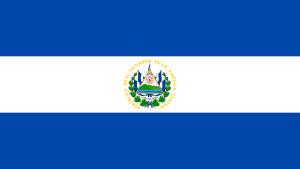
- Second Round v.

- Third Round v.

- First Round v.
- 1986 CONCACAF Champions' Cup
- First Round v.

- First Round v.
- 1988 CONCACAF Champions' Cup
- Group C v.
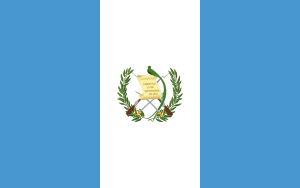
- Group C v.

- Group C v.

- Third Round v.

- Third Round v.

- Third Round v.
.svg.png)
- Group C v.
- Preliminary round v.

- Group A v.

- Group A v.

- Group A v.

- Quarterfinals v.
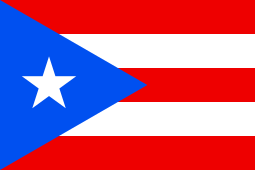
- Preliminary round v.
- Group B v.

- Group B v.
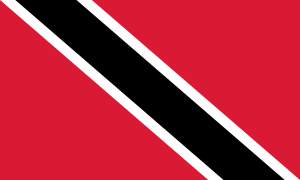
- Group B v.

- Quarterfinals v.

- Group B v.
Torneo Fraternidad
- 1980 Torneo Fraternidad
- First Round v.

- First Round v.
- 1981 Torneo Fraternidad
- First Round v.

- First Round v.
- 1982 Torneo Fraternidad
Copa Interclubes UNCAF
- 2002 Copa Interclubes UNCAF
- Group C v.

- Group C v.
.svg.png)
- Group C v.

- Group C v.
- 2003 Copa Interclubes UNCAF
- Group 3 v.

- Group 3 v.
.svg.png)
- Group 3 v.

- Group 3 v.
- 2005 Copa Interclubes UNCAF
- First Round v.

- Quarter-finals v.

- First Round v.
- 2006 Copa Interclubes UNCAF
- First Round v.

- Quarter-finals v.

- First Round v.
Records
All time top scorers
(As of 21 October 2019) Bold players are still active
| # | Player | Goals | Years |
|---|---|---|---|
| 1 | 78 | 1979–1991 | |
| 2 | 66 | 2001–2004, 2006–2008, 2009, 2011, 2013, 2014–2016 | |
| 3 | 60 | 2017–2019 | |
| 4 | 57[5] | 1972–1985 | |
| 5 | 56 | 1995–2003, 2005–2006 | |
| 6 | 47 | 1978–1983 | |
| 7 | 42 | 1965–1978 | |
| 8 | 42 | 1979–1989 | |
| 9 | 42 | 1989–1994 | |
| 10 | 40 | 2000–2017 | |
| 11 | 35 | 1983–1991, 1992–1997 | |
| 12 | 34 | 1969–1972 | |
| 13 | 33 | 2014–2016 | |
| 14 | 30 | 1968–1972 | |
| 15 | 30 | 2007, 2009, 2012, 2014 | |
| ?? | 28 | 2004–2005 | |
| ?? | 25 | 2001–2002, 2006–2009 | |
| ?? | 24 | 2003–2005 | |
| ?? | 24 | 2005, 2009, 2012, 2014 | |
| ?? | 20 | 2008–2010, 2012 |
All time appearances
(As of 20 April 2013)
| # | Player | Appearances | Years |
|---|---|---|---|
| 1 | 486 | 1998–2009, 2010–2016 | |
| 2 | 474 | 2000–2017 | |
| 3 | 266 | 1972–1985 | |
| 4 | 261 | 1979–1991 | |
| ¿? | 229 | 1992–1998, 2006–2010, 2012 |
Marathón's logos
Since 1925, Marathón uses a specific logo for the institution.
 1925-
1925-
Uniforms
The historic colors for the club are green and red, in some cases, white. More recently it has promoted black. The uniform of the team has been sponsored by Joma.
Kit evolution
|
Historic
|
1979
|
1985
|
2002
|
2003
|
2004
|
Current squad
Apertura 2018
Note: Flags indicate national team as defined under FIFA eligibility rules. Players may hold more than one non-FIFA nationality.
|
|
Reserve squad
Note: Flags indicate national team as defined under FIFA eligibility rules. Players may hold more than one non-FIFA nationality.
|
|
Former coaches



.svg.png)


.svg.png)
.svg.png)
.svg.png)

.svg.png)
.svg.png)
.svg.png)

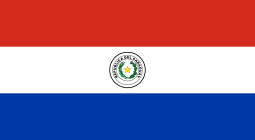
.svg.png)
.svg.png)
.svg.png)
.svg.png)

.svg.png)
.svg.png)
.svg.png)


.svg.png)

.svg.png)


.svg.png)


.svg.png)
.svg.png)


.svg.png)
.svg.png)


.svg.png)


.svg.png)


.svg.png)

.svg.png)



References
- https://www.elgrafico.com/futbol/Cinco-equipos-hondurenos-podrian-no-iniciar-el-Clausura-2018-20180103-0002.html
- "Monstruo sediento" (in Spanish). Diario La Prensa. 10 August 2007. Archived from the original on 28 September 2007. Retrieved 2007-08-11.
- http://www.rsssf.com/tablesh/hondchamp.html
- “No creí que mi récord durara tanto”: Machado Archived 20 August 2012 at the Wayback Machine – La Prensa (in Spanish)
- Desafíe a Ismael Archived 12 August 2013 at Archive.today – La Prensa (in Spanish)
- Desafíe a Ismael Archived 12 August 2013 at Archive.today – La Prensa (in Spanish)
- "Archived copy". Archived from the original on 20 January 2012. Retrieved 12 August 2011.CS1 maint: archived copy as title (link)